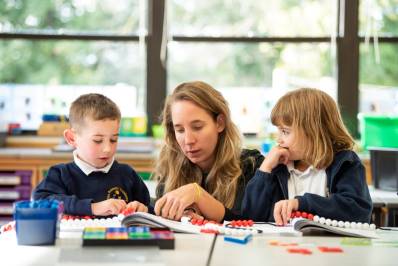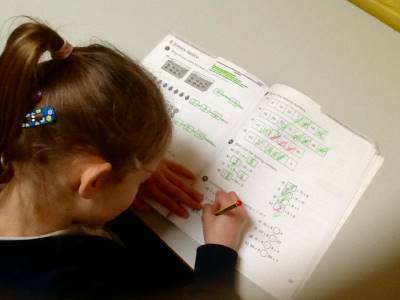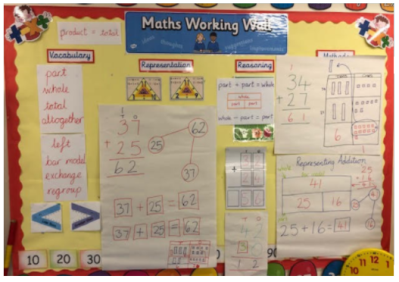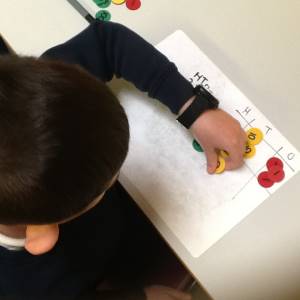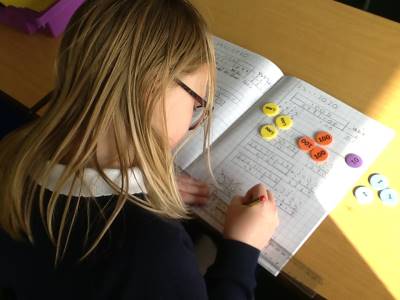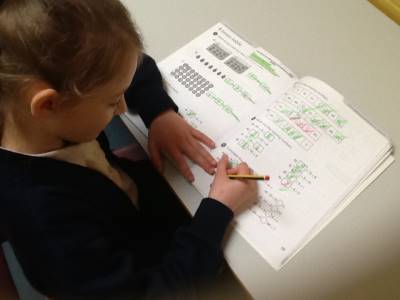Maths
Intent:
The focus of maths at Diss Primary Academy Partnership is on the development of deep structural knowledge and the ability to make connections. Pupils develop fluent technical proficiency and think deeply about the underpinning mathematical concepts. We have adopted a ‘mastery’ approach to teaching mathematics. The intention of this approach is to provide all children with full access to the curriculum, enabling them to achieve confidence and competence known as ‘mastery’ in mathematics. Maths is promoted with a positive attitude and that every child can succeed.
Spirituality:
In maths we encourage children to believe in their potential to succeed and appreciate the wonder of mathematical problems, concepts and real world situations. Children spark curiosity when diving deeper into concepts and are encouraged to take risks when learning.
Implementation:
To support the teaching of this we use the Pearson Power Maths scheme for teaching maths from Year 1 to Year 6 which follows the mastery approach to learning. At the heart of Power Maths is the belief that all children can achieve. It is built around a child centred lesson design that models and embeds a growth mindset approach to maths. Manipulatives are fundamental in the teaching of maths and are essential in every lesson.
For each year group the curriculum strands are broken down into core concepts. These are taught in blocks of lessons giving sufficient time to develop a deep and sustainable understanding of core maths concepts. Each concept is broken down into lessons which build on prior knowledge to help children build a robust and deep understanding before moving on.
There are planned opportunities for same day intervention if necessary, and also for deepening activities if pupils master the concept.
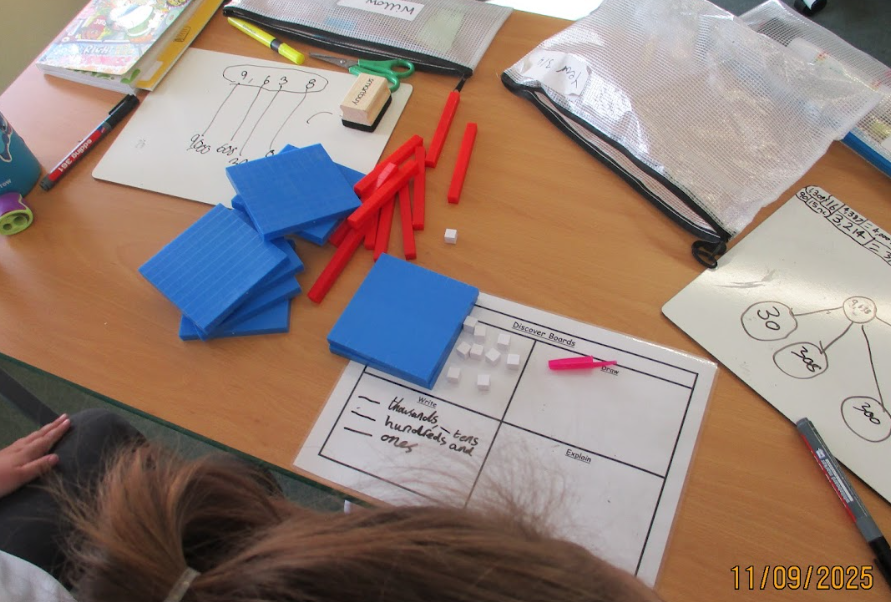
Each lesson is divided up into:
- A multiplication fluency task. Every day we practise our times tables skills. The children improve their fluency skills by singing a times table song, completing a counting stick activity, completing a TTRS sheet and or a times table grid.
- The ‘Discover activity’ is an activity where children can share, reason and learn. The children use discover boards (where they can make it, draw it, write it or explain it) to support exploring a real world problem.
- Children then consider solutions as a class, with partners or independently. Mathematical talk is encouraged to allow the children to articulate their thoughts.
- Children then get the chance to practice the skills learnt to build fluency and develop a deeper understanding of mathematical concepts.
- Challenge questions link to other areas of maths and encourage children to take their understanding to a greater level of depth.
- Children review, reason and reflect on learning in every lesson.
- At the end of the lesson, children are asked to answer a reasoning question to see if they can independently apply their learning.
Teaching is underpinned by methodical curriculum design and supported by carefully crafted lessons and resources to foster deep conceptual and procedural knowledge.
There are lots of things you can do at home to support your child with maths. Here are some websites that may be of interest to you:-
www.bbc.co.uk/cbeebies/shows/numberblocks
We the 'PiXL' APP and TT-Rockstars for times table practice to support children's development of basic number and multiplication facts. All children by the end of year 4 are expected to know all multiplication facts up to 12 X 12. The National Assessment format is an online task where children have 10 seconds to answer each question.
 Diss Church of England
Diss Church of England